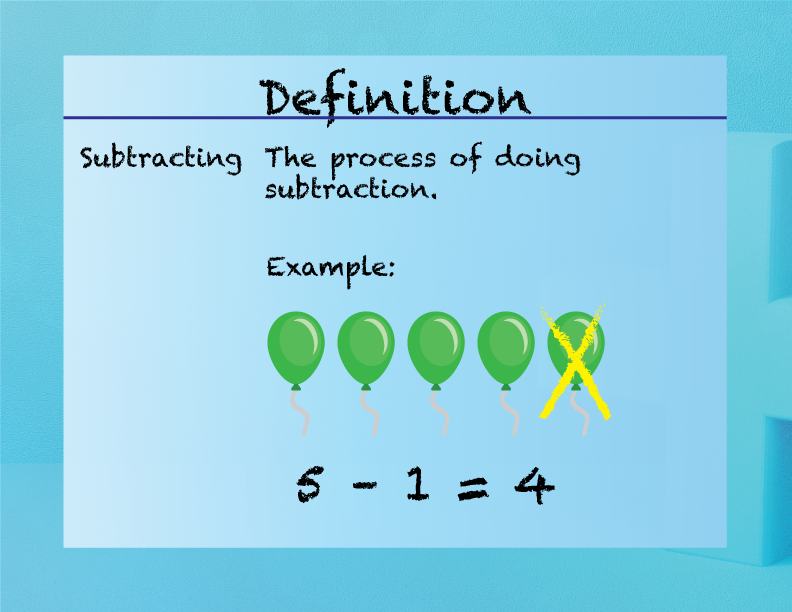
Display Title
Elementary Math Definitions--Addition Subtraction Concepts--Subtracting
Display Title
Subtracting

Topic
Addition and Subtraction
Definition
Subtracting is the process of taking one number away from another to find the difference.
Description
Subtracting is a fundamental arithmetic operation that involves taking one number away from another to find the difference. For example, subtracting 4 from 7 gives a difference of 3. This operation is crucial in everyday life, from calculating expenses to measuring quantities in recipes.
In mathematics, subtraction is symbolized by the minus sign (-). The number being subtracted is called the subtrahend, and the number from which it is subtracted is called the minuend. The result is known as the difference. For instance, in the equation
7 − 4 = 3
is the minuend, 4 is the subtrahend, and 3 is the difference. Subtraction is not commutative, meaning the order of numbers affects the result.
Understanding subtraction is vital for students as it forms the basis for more complex mathematical concepts such as division, algebra, and calculus. It also enhances problem-solving skills and logical thinking.
Teacher's Script: "Today, we are going to learn about subtracting. When we subtract, we take one number away from another to find out how many are left. For example, if you have 7 apples and give 4 away, how many apples do you have left? That's right, you have 3 apples! Subtracting helps us find out how much is left."
For a complete collection of terms related to Addition and Subtraction click on this link: Addition and Subtraction Collection
| Common Core Standards | CCSS.MATH.CONTENT.1.OA.B.3, CCSS.MATH.CONTENT.2.NBT.B.9 |
|---|---|
| Grade Range | 1 - 3 |
| Curriculum Nodes |
Arithmetic • Addition • Addition Expressions and Equations |
| Copyright Year | 2021 |
| Keywords | addition, subtraction, equation, place value |